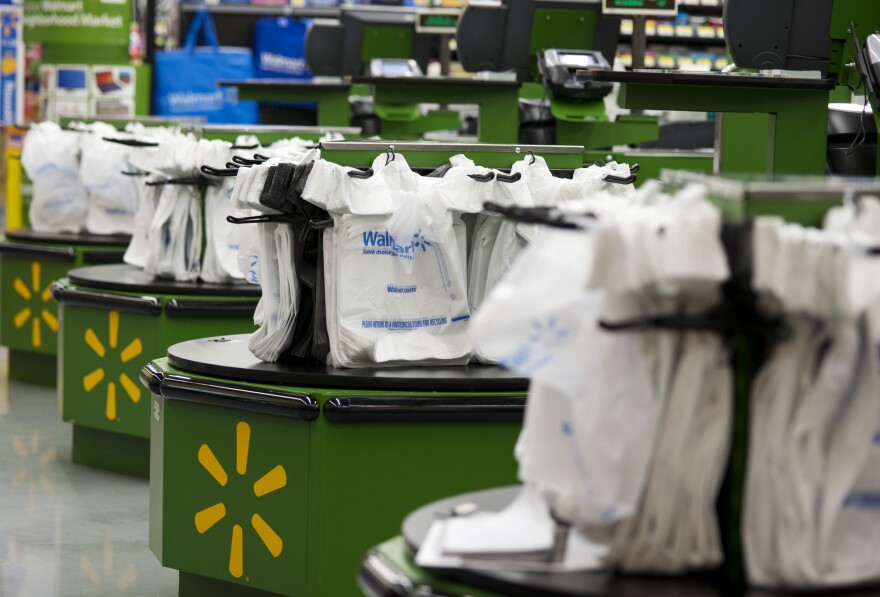Maine’s Department of Environmental Protection says it won’t enforce a statewide ban on single-use, plastic carry-out bags and polystyrene foam takeout containers until July of next year — and that’s drawing some fire from environmentalists.
The bans were supposed to start in January, but the DEP says the pandemic has boosted demand for single-use bags and foam boxes, and supply-chain problems are making it harder to find alternatives.
Brian Beneski, who supervises recycling programs for DEP, says compliance concerns have been been raised by supermarkets, restaurants, retailers and more.
“And the schools, who are sending more food home. So it’s one of these things: it’s just COVID-19 kind of impacting every aspect, so that rather than take a piecemeal approach it seemed the best approach would be to say, ‘July 1, this is when we’re giving everybody a chance to get their ducks in a row,’ so to speak,” he says.
Beneski says the DEP wants to avoid making it more difficult for businesses to deploy their hygiene protocols. But the state’s largest environmental group, the Natural Resources Council of Maine, is pushing back on the enforcement delay.
“If particular stores really were having supply-chain issues and they provided documentation to DEP, that’s perfectly reasonable for DEP not to enforce the ban,” says Sarah Nichols, who directs NRCM’s sustainability programs. “But just to provide a blanket waiver for everybody until July 1 doesn’t really make any sense.”
Nichols says the new state law superseded local bans on single-use plastic bags in two dozen Maine municipalities, many around greater Portland. So even those local decisions will effectively be moot until the state decides to start enforcing the statewide rules.
The DEP and NRCM both agree, though, that one result of postponing the bans will be more plastics ending up in landfills and incinerators.


